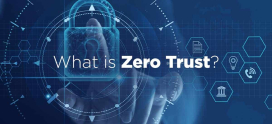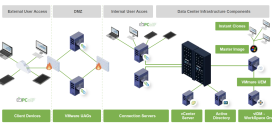
The three most common IT problems your company faces
Technology is changing faster than ever. This rapid change comes with a lot of challenges that companies do not take into consideration. In this article, we will discuss the three most common IT problems companies face:
Network Security/Data Security
Rapid changes in technology has brought challenges in the entire network security model. Data at rest and data in motion are both at risk. These risks include viruses, spyware, trojan hoaxes, ransomware and many other attacks. Ponemon organization reveals that 50% of small businesses have been breached in the last twelve months. Malwarebytes tracked a 90 percent increase in the number of detected ransomware attacks in 2017. Malwarebytes analyzed close to a billion malware incidents around the world — supplementing this with their own honeypot malware collection. They found that the monthly rate of ransom-related attacks increased up to 10 times the rate observed in 2016.
Data Backup Issues
Data backup isn’t something that you should put aside anymore. Think about it for a moment, how important is your data to you? Can your company survive without the pertinent data that it operates with? What would happen if tomorrow you lost all of your data, will your company still be in operation? I’m sure the answer to these questions is a definite No. Hence, it is time to start thinking about a backup plan. Most of the IT problems arise after you find out that you don’t have proper backups after a security attack. Your backup plan should include a retention period as to how long you want your backed up data to be retained. It should also include a backup schedule of a full backup and incremental or differential changes that gets copied to the backup job.
Along with the backup plan, your company must also have a disaster recovery plan. What happens if the server(s) you are running from fail? If you are running from a cloud server, what happens if you loose connectivity to the server? And if you are still running from a single on-premise (on-site) server, you must have a disaster recovery plan because there are way too many scenarios around your server failing.
The Cloud Phenomenon
If your data is on the cloud, you may be thinking that you are protected. This is not the case at all, in fact as long as you are connected to the internet, you are prone to the same types of attacks if you had the data stored locally on your server. Data on the cloud is definitely more secure as cloud providers do have a security plan but the means through which you are accessing the data from could be compromised. Hence, it is important your Managed Service Provider (MSP) uses defense in depth as a way to protect not only your computer but also your networks. Read more about why it is important to pick the right MSP. IT problems can be reduced by having a proper set of security policies and implementing those policies.
AMS Networks recommends that you re-evaluate your network security policies, backup and disaster recovery plan and thoroughly look at your network to include defense in depth comprising of firewalls, intrusion prevention systems, adaptive security appliances, antivirus, anti-spyware and other network security tools to make sure that you are protected.
Contact us today for a free on-site consultation so we can highlight and address your organizational IT challenges.



